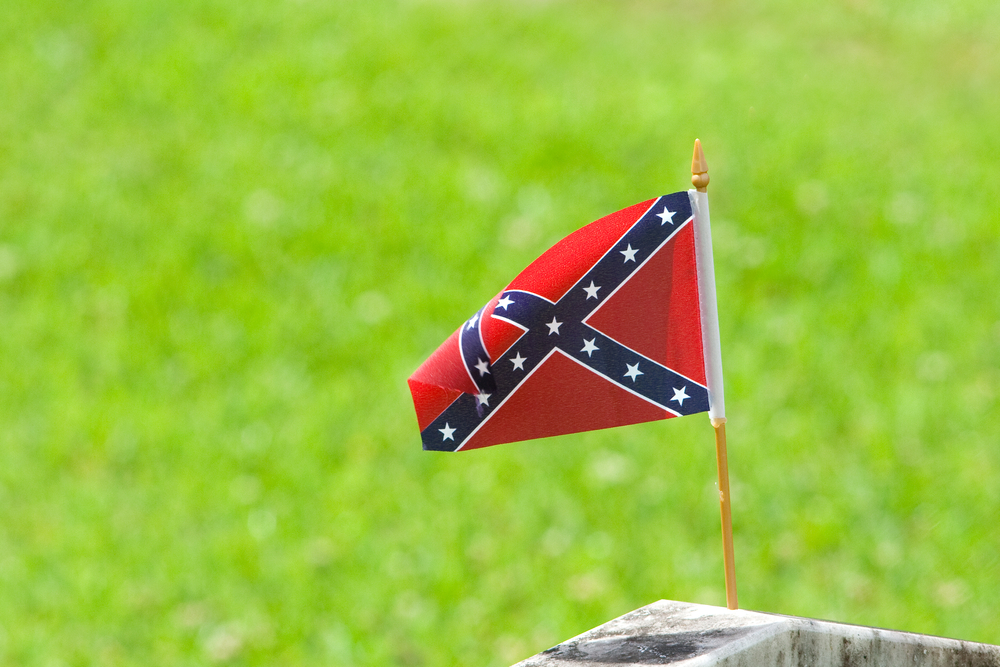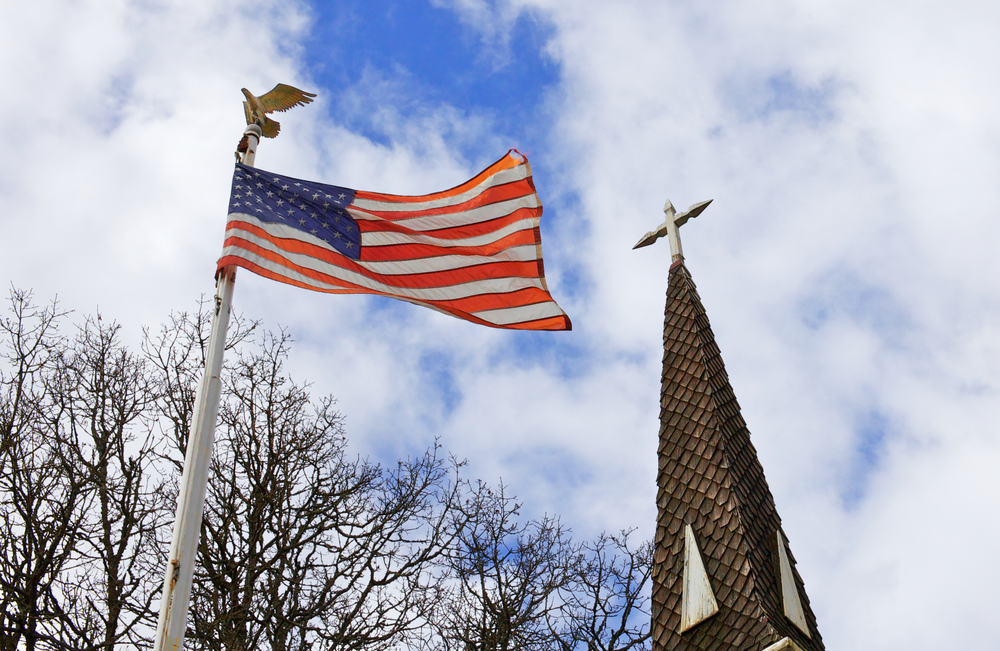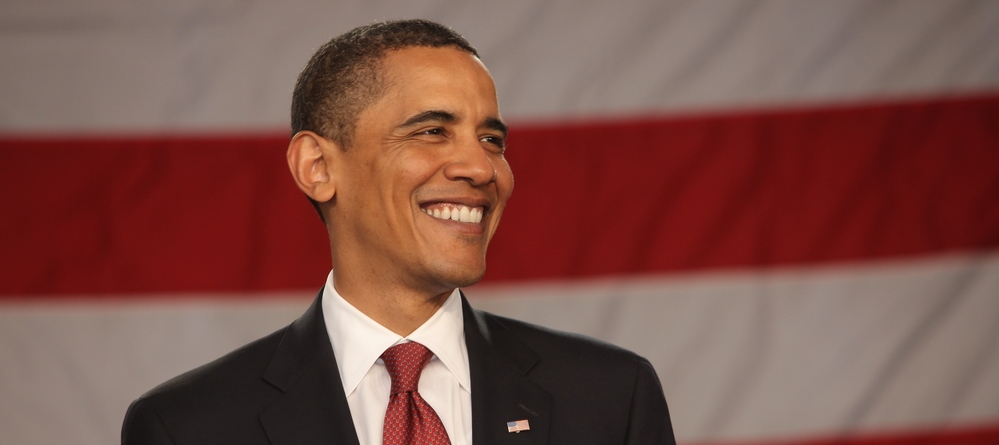
by Brian Hobbs | Jun 24, 2015
Galvanized in national attention after the murder of nine church goers, South Carolina once again finds itself in the heart of controversy, about the Confederate Flag flying near its state capitol. Voices have risen up in favor of taking the flag down in South Carolina and elsewhere, including Russell Moore and even S.C. Governor Nikki Haley. Meanwhile, sales of Confederate flags have skyrocketed. Who is right in all this? I offer three observations:
1. What’s in a flag?
Flags have meaning. The Christian flag. The American flag and the “Republic for which it stands.” What does the Confederate Flag mean? Is it Southern heritage and history? Is it racism and hate? Or something in between or a mixture?
The first time I ever saw the Confederate Flag was as a boy, watching “The Dukes of Hazards.” Though I grew up in the Southwest, it was never a frequent sight in my life, and until I grew up and visited some Civil War battlefields, I never understood the significance of it.
Then in college, at one point, I had a “South-Will-Rise-Again,” Confederate-Flag waving friend. He was generally a nice guy, but I sometimes wondered if he could say with a straight face that he had no racial resentment or even racism in his heart.
Be that as it may, I recognize the appeal of history and heritage the flag has to many. I, too, love Gen. Robert E. Lee. Moreover, I believe that in the Civil War, both sides had admirable qualities (and poor qualities) to one extent or another, even as slavery had to be abolished at all costs.
Fast forward to today, much of society does not equate the flag with history and heritage, in large part because many who waved it in recent decades committed wrongs against people. As so often happens, a smaller group can mar something for a larger group.
2. When rights aren’t necessarily the right thing
When it comes to southern pride, there are ways to honor that heritage apart from the battle flag. In the case of the Confederate Flag, it has widely come to signify what side of the racial divide you are on.
South Carolina has not flown this flag continuously since its beginnings. The flag-flying tradition is only as old as the 1960s, when this country was in a pitch debate about racial segregation. In other words, flying the flag at the capitol is a relatively new tradition.
That is not to say this state does not have the right to fly the Confederate Flag, or individuals; it is to say they can choose not to. If a symbol becomes too tainted in people’s minds, or too divisive, it can be a measure of prudence to take the flag down.
3. Don’t demonize, dialogue
An issue this contested, this important, requires our best attention and best intentions. When debating the flag, don’t assume the worst about either party. For flag proponents, don’t assume opponents are ignorant people, bowing down to political correctness. For flag opponents, don’t assume everyone who has affection for the Confederate Flag is a deep-seated racist.
I, speaking for myself alone and no other person or group, favor the idea of taking down the Confederate Flag in South Carolina, for the reasons Russell Moore has stated.
It is my sincere prayer that as a nation, as a people, we can find a better day in this country when the ghosts of racism are fully chased out, especially among Christians. To that end, I say, Lord help us!

by Brian Hobbs | Jun 1, 2015
Various Christians and Muslims are cheering a U.S. Supreme Court ruling that has religious liberty implications. To be specific, according to news reports, the Court ruled 8-1 in favor of a Tulsa woman named Samantha Elauf who said she was wrongly denied a job at the retailer Abercrombie Kids in 2008 because she wore a Muslim head scarf.
The Court appears to have based its ruling on the Equal Employment Opportunity Commission guidelines, under the Civil Rights Act, saying: “An employer may not make an applicant’s religious practice, confirmed or otherwise, a factor in employment decisions. For example, suppose that an employer thinks (though he does not know for certain) that a job applicant may be an orthodox Jew who will observe the Sabbath, and thus be unable to work on Saturdays. If the applicant actually requires an accommodation of that religious practice, and the employer’s desire to avoid the prospective accommodation is a motivating factor in his decision, the employer violates Title VII of the civil rights law.” (Note: Only Justice Clarence Thomas dissented. A summary of the ruling can be found here.)
Why are Christians cheering? It is not because they necessarily agree with Muslim beliefs about women wearing the head scarfs. Indeed, some dislike the very idea or sight of them, while still others respect the practice.
They are cheering because this represents a victory for religious liberty. Wearing the head scarf is considered part and parcel of practicing the Muslim faith, and therefore Abercrombie & Fitch (which is a publicly-traded company, as opposed to a privately-held company) should, in this instance, accommodate this young lady.
That leads to the bigger point. In conversations today, it is important to underscore that religion is not just what you do on Sundays or at a worship service. Religion affects our everyday lives, and that is what some people do not understand. The U.S. Constitution protects, not only the freedom of worship, it protects the free exercise of religion.
In conversations today, it is important to underscore that religion is not just what you do on Sundays or at a worship service.
For a Muslim, that could mean wearing a head scarf and following tenant of their faith, so long as they do not harm someone else. For a Jewish person, it means following certain dietary regulations or observing the Sabbath. For a Christian, it could mean religious expressions in public that some people may not like, but that we are protected to enjoy.
That, in the end, is why Christians can celebrate this ruling, along with people of other religions or no religion. We never want to see a day in this country in which our religious consciences are silenced or held captive by government. As Martin Luther, to go against conscience is neither right nor safe. So three cheers for the Supreme Court and this recognition of religious liberty.
And even more cheers to those who are actively working to share the Gospel of Jesus Christ with people of other religions or no religions, knowing that is the best exercise of religious liberty of all.
[HB1]http://www.reuters.com/article/2015/06/01/us-usa-court-scarf-idUSKBN0OH2NW20150601
Photo credit: Jim Bourg/Reuters

by Brian Hobbs | May 13, 2015
A new study published by the Pew Research Center suggests that Christianity in America is on a fast decline.
Pew said, “The United States remains home to more Christians than any other country in the world, and a large majority of Americans – roughly 7-in-10 – continue to identify with some branch of the Christian faith. But the major new survey … finds that the percentage of adults (ages 18 and older) who describe themselves as Christians has dropped by nearly eight percentage points in just seven years, from 78.4% in an equally massive Pew Research survey in 2007 to 70.6% in 2014.”
That is not all. “Over the same period, the percentage of Americans who are religiously unaffiliated – describing themselves as atheist, agnostic or ‘nothing in particular’ – has jumped more than six points, from 16.1% to 22.8%.”
Most of the drop was seen among mainline Protestants and Catholics, but Evangelical Christians are in decline as well. Or at least those who say they are.
And that is the bigger story behind this story: nominal Christianity in America is what’s dying. As Ethics and Religious Liberty President Russell Moore points out, that is a good thing. He said, “We do not have more atheists in America. We have more honest atheists in America. Again, that’s good news. The gospel comes to sinners, not to the righteous.”
The Pew study, therefore, should not cause panic, but it should cause us to pray and act. Even if Christianity were to die a slow death in North America, there are still large parts of the world which are experiencing New Testament-growth of the Faith.
In his book, The Next Christendom, author Philip Jenkins predicts that the future of global Christianity would be southward (e.g. South America, Asia and Africa). Throughout the ages, the move of God has crisscrossed the globe. While we pray and believe God will bring revival to our land, we know that the Lord will not forsake His people and that the church of God will prevail (Matt. 16:18).
After all, in 1971, Soviet Russian Communism seemed unstoppable. They ruled more than half of the world, including China, Cuba and large parts of Eastern Europe. They had every armed weapon the United States and West did and a level of peace and prosperity not previously enjoyed before the Bolshevik revolution of 1917. Who would have predicted that in a few years, it would crumble?
In a similar way, today the secular, evolutionary worldview is on the march and looks unbeatable. This secular mindset has taken over once Christian strongholds, including universities and hospitals.
Yet you could easily make the case that secularism, not Christianity, is about to die, and that religion in general is on the rise. Sadly other religions are on the rise, including Islam and Mormonism, but that should give us hope that spiritual hunger does not die.
In the end, the Pew study offers a good reminder for Christians in Oklahoma to share Jesus while there is time, especially with our children and young people. It is also a call to live out our faith so non-believers will see that our lives and lips match, and to pray like never before. We believe God can do a great work; indeed we believe it, no matter what a new study may say.

by Brian Hobbs | Apr 7, 2015
Rolling Stone magazine is in hot water for publishing a story that proved to be false. According to the editor of the publication, a story titled “A Rape on Campus” was published that centered an alleged gang rape at a University of Virginia fraternity house.
The Washington Post uncovered details suggesting the assault could not have taken place, as Rolling Stone described, and “the truth of the story became a subject of national controversy.”
“We are officially retracting ‘A Rape on Campus’,” the Stone’s editor said in response to the controversy. “We are also committing ourselves to a series of recommendations about journalistic practices that are spelled out in the report.” The editor apologized to readers and “to all those who were damaged by our story and the ensuing fallout.”
I personally work in the world of publications, so it is easy for me to identify with the pain that comes from publishing something that would turn out to be false; even worse, publishing something that tarnishes another’s reputation.
Now the publication where I work focuses on Gospel-centered, Christ-honoring stories that inspire, rather than expose journalism. That being said, there is more going on here in the Rolling Stone case than just expose journalism gone awry. So, as a fellow journalist and Christian, I wish to offer these three thoughts:
- Where’s the honor?
Many in the public were not satisfied with the retraction and apology from Rolling Stone. Many wish the publication went farther in restoring the reputations of those who were accused of rape and holding accountable the reporters and editors.
Dr. Russell Moore, president of the Ethics & Religious Liberty Commission of the Southern Baptist Convention, had these pointed words. “Rolling Stone magazine printed serious criminal accusations against a campus group, accusations the periodical now admits are completely false. Despite all of this, both the article’s author and the magazine editor will keep their jobs according to the publisher. This matters, and matters to far more people than just those on the campus of the University of Virginia or even to the target demographic of Rolling Stone. Behind this scandal is a larger point. In our society, it’s become acceptable to lie about people and ideas, as long as the crisis created is in line with a perceived social good.”
If our society is ever to re-capture honor, it must start with upholding truth as paramount. A society, like a family or a church, who glosses over lying will be faithless, rootless and hopeless.
- Not just unfortunate, but wrong.
Politicians these days are fond of saying, “I misspoke,” when in fact they were just dead wrong. People have the habit of saying about a bad situation, “That is unfortunate,” when it fact it is wrong.
This Rolling Stone debacle is a reminder that some actions go beyond being incorrect. They are false and flat-out wrong. It is not just the world of journalism that needs to consider the weight of words. In a day and age in which a lie can travel halfway around the world before truth has a chance to wake up in the morning, to paraphrase Winston Churchill, we must call things like they are and stop using euphemisms that excuse inexcusable actions.
- Don’t rush to judgment.
These days, the moment an accusation is levied, that person is vilified and excoriated. With the rise of social media, people are casting judgments even before all of the facts are heard.
The court of public opinion, just like the court of law, would do well to hear all of the facts before pronouncing judgment. In that way, we will be more Christian. The Bible emphasizes there be at least two or three witnesses to a crime before a judgement can be made. There is wisdom and prudence in that practice, which is all but gone today.
Whether a false story published in a magazine, or an issue that is raging on social media, we each would do well not to rush to judgment. And so done, we will avoid being a hurled stone, rolling over people who may not have done anything wrong in the first place.

by Brian Hobbs | Mar 30, 2015
One of the most popular social media hash tags last weekend was #BoycottIndiana. Fueled by major backlash from the Hoosier State’s “Religious Freedom Restoration Act,” the immediate concern was that the law would allow business owners and others to refuse service to homosexuals.
Gov. Mike Pence, a Republican, defended the law on national television, and its authors have assured the public that the bill has nothing to do with discrimination and everything to do with religious liberty.
There is no shortage of confusion about what the bill actually does and says. Here is the actual text of the law causing such a stir.
Ethics & Religious Liberty Commission President Russell Moore shed light on the subject, saying this: “The public debate over Indiana’s new religious freedom law is (almost) enough to drive this Baptist to drink. The conversation has been the most uninformed and ignorant I’ve seen in years. This culminated in a panel on one of the Sunday talk shows suggesting that the law would return us to the days when signs would hang in stores detailing who would not be welcome to do business there.
“The law, of course, does nothing of the sort. Indiana merely passed a state version of the Religious Freedom Restoration Act (RFRA), the law that passed with an overwhelming bipartisan majority in 1993 and was signed into law by President Bill Clinton. The act was supported by a coalition spanning from the far Left to the far Right.
“RFRA, of course, does not grant anyone the right to ‘discriminate’ or deny service to anyone else. All the law does is articulate that religious freedom is a factor to be weighed in making court decisions about the common good, that the government must show good cause in restricting someone’s free exercise of religion.”
Recall that the Federal “Religious Freedom Restoration Act,” which was approved and signed during Bill Clinton’s presidency, played a major role in the U.S. Supreme Court’s discussion of the Hobby Lobby case. Shortly after Hobby Lobby prevailed, there was talk in Congress about repealing the RFRA. So it is distinctly possible that the Indiana law had more to do with Hobby Lobby issues than with the same-sex marriage issue.
Be that as it may, this issue is a reminder that the “perpetual outrage machine” can trash anyone’s reputation in just a few moments, even an entire state. It is the duty of Christians, therefore, to spread more light than heat when hot topics like this come along. When you don’t understand a law, don’t jump on a bandwagon for one side or the other. Do your own homework, listen to voices you trust, as well as the other side. Then and only then will we have the kind of wisdom we desire in our Republic. Then and only then will vast misunderstandings like we see in Indiana be easier to avoid.

by Wade Crews | Feb 9, 2015
The President of the United States is very charming and has a great smile. Like most politicians, he will often say things he does not mean or cannot really do. I am praying that is the case this week. Last Thursday at the National Prayer Breakfast, the President tried to make a moral connection between incidents in history and the atrocities of the day.
This is not a political blog. I will not critique elected officials on this site for their decisions. This is a small and calculated response to a comment which at its base seems to imply we have no right to call out evil based on our not being perfect either.
The exact quote is: “Humanity,” Obama said, “has been grappling with these questions throughout human history. And lest we get on our high horse and think this is unique to some other place, remember that during the Crusades and the Inquisition, people committed terrible deeds in the name of Christ. In our home country, slavery and Jim Crow all too often was justified in the name of Christ.”
At the very least, this is a misunderstanding of history and a choice to ignore many facts along the way. At the most it is a direct attack on the Christian faith of many in this country the day after Mr. Obama had a closed meeting with the Islamic community in the White House.
Dr. Russell Moore (President Ethics and Religious Liberty Commission) has chimed in as well as many other scholars and commentators. In the blogs on this site, we do not attack other beliefs, we promote Christ and His Truth and desire for our lives.
In The New Testament, Paul warned us in a letter to Timothy, to be prepared for this kind of rhetoric. It should not surprise us.
2 Timothy 4:1-5 (NASB) I solemnly charge you in the presence of God and of Christ Jesus, who is to judge the living and the dead, and by His appearing and His kingdom: preach the word; be ready in season and out of season; reprove, rebuke, exhort, with great patience and instruction. For the time will come when they will not endure sound doctrine; but wanting to have their ears tickled, they will accumulate for themselves teachers in accordance to their own desires, and will turn away their ears from the truth and will turn aside to myths. But you, be sober in all things, endure hardship, do the work of an evangelist, fulfill your ministry.
There are other venues to vent and opine about what the President said. I would like to “rebuke and reprove” what was said with some grace. My tongue is bleeding as I bite it right now. I know there are millions in our country who agree with his every word, however there seem to be several misrepresentations in the speech. (These are my original thoughts and if they are similar to others expressed elsewhere, I did not use them as a source of inspiration.)I have much I would like to say – but here are my top three responses.
- He is the President of the United States of America. The Crusades and Inquisition are not part of this country’s history. Should Christians still hold Italy accountable for Nero burning us on stakes to light the streets in Rome?
- Many Christians died in this country to abolish slavery – namely The President of the United States, not to mention the hundreds of thousands buried at Gettysburg and elsewhere. Slavery was not a invented by this country, nor was it promoted in the name of Christ, but it was abolished by this country in the name of Christ.
- The Christian – Dr. Martin Luther King Jr led many other Christians in an effort to obtain equal access and rights for all.
If you want your ears tickled, believe whatever and whoever you want. I recommend you read the Gospel of John if you want to know the Truth. To minimize and deflect the horrors being undertaken today, by making a moral equivalence to things in history no Christian I know would support or agree with is a sophomoric debate tactic.
Perhaps our challenge is not that we are on our “High Horse”, but that we have not mounted our noble steed at all. We should be more prepared than ever to speak truth in love and grace and understand when The Tickler is up to his old tricks. I for one am not laughing.





